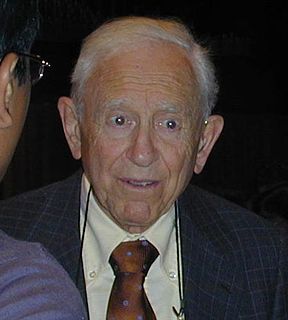A Quote by Milton Friedman
Positive economics is in principle independent of any particular ethical position or normative judgment...In short, positive economics is or can be an "objective" science.
Related Quotes
I started in the law; and the study of law, when it precedes the study of economics, gives you a set of foundation principles about how human beings interact. Economics is very useful, and I studied economics in graduate school. But without understanding the social and organizational context of economics, it becomes a theory without any groundwork.
As I understand it, Kantian constructivism is partly a position in normative ethics and partly a position in metaethics. In metaethics, it is the position that ethical claims have truth values, but their truth conditions consist not in a set of objective facts to which they correspond, but instead in the outcome of some procedure of deliberation resulting in decisions about what to do.
Most intellectuals outside the field of economics show remarkably little interest in learning even the basic fundamentals of economics. Yet they do not hesitate to make sweeping pronouncements about the economy in general, businesses in particular, and the many issues revolving around what is called 'income distribution'.
My mother and my father taught me to look at the actual problem, not the face of it, not the veneer of it. So for me, I was never - I was impressed that it - racially, I was impressed, right, but now in America it's about economics, and it's been about economics, and honestly, everything's been about economics since I don't want to say the beginning of time, but it's been about economics for a long while.



































